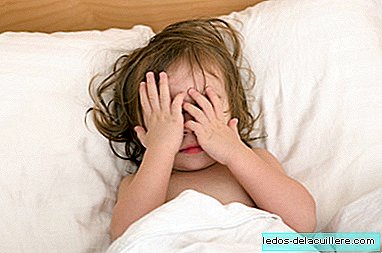
According to the Spanish Society of Neurology (SEN), a 25 percent of the child population suffers from some type of sleep disorder, and with the return to school these types of situations usually become more evident, since it is time to adjust schedules and accommodate routines after a long holiday period.
Experts remember how important it is for children to sleep the number of hours appropriate to their age, and they recommend parents adopt timely measures to favor this rest. We tell you how we can help them!
Childhood sleep disorders
According to the Spanish Association of Pediatrics (AEP), many children suffer from sleep disorders transiently, and up to 30 percent of them have chronic problems.Sleep disturbances in childhood are very different from those of adults, both in frequency and in causes and consequences. Further, sleep patterns in children change as they grow, adapting to new individual and cultural needs.
The effects of lack of sleep in childhood or its poor quality have repercussions on cognitive and physical development, hence the importance of detecting them in time and putting an immediate solution:
"A good sleep is important for a better physical and intellectual performance, so rest must be of quality and with an adequate duration" - explains Dr. Carles Gaig, neurologist of the Study Group of Vigil and Sleep Disorders of the SEN
In this sense, that children sleep poorly can lead to complications and alterations in their cognitive and emotional development, affecting academic performance and behavior (irritability, nervousness, hyperactivity, tiredness, sudden changes in behavior ...).
In addition, as a result of poor quality sleep, headaches and appetite imbalances that result in obesity or other health problems such as type 2 diabetes can also occur.
Main sleep disorders
The AEP rates the following sleep disorders in the childhood stage:
Narcolepsy, is a sleep disorder that causes excessive sleepiness and frequent daytime sleep attacks
Obstructive sleep apnea syndrome
Syndrome of periodic movements of the legs
Confusional awakenings
Somnambulism
Night terrors and nightmares
Rhythmic movements of sleep, characterized by stereotyped behaviors with repetitive movements of the trunk, neck and head that occur immediately before the beginning of sleep and are maintained during light sleep. It is common in infants and children until the second or third year of life, but it can persist until adulthood in some cases.
Somniloquia, or what we commonly call "talking in dreams"
Sleep myoclonus, which are synchronous contractions of the limbs or trunk that occur during quiet sleep in neonates
Enuresis
In addition, we must add environmental disorders that prevent or hinder sleep (noise, light, temperature ...), as well as the presence of bad habits when going to bed that makes the child does not sleep the recommended hours.
Measures to promote proper rest in children

To avoid this problem and the frequency of disorders, SEN neurologists and AEP pediatricians recommend a good sleep hygiene adopting the following measures:
Appropriate and relaxed family habits to initiate sleep (for example, stories or breathing exercises), also paying attention to schedules and routines.
Comfortable space, comfortable bed, adequate temperature and low light intensity environment.
Do not delay the moment of going to bed if the children are tired, and on the contrary, avoid taking them to sleep if they are too active.
Avoid using screens, tablets or mobile devices before going to bed.
In addition, a recent study carried out by the Swiss University of Basiela and published in the scientific journal Sleep Medicine Reviews, says that sport significantly increases the quantity and quality of sleep. Therefore, from the Spanish Society of Neurology they recommend the practice of physical exercise in the morning or in the afternoon to improve children's rest.
Photos | iStock












